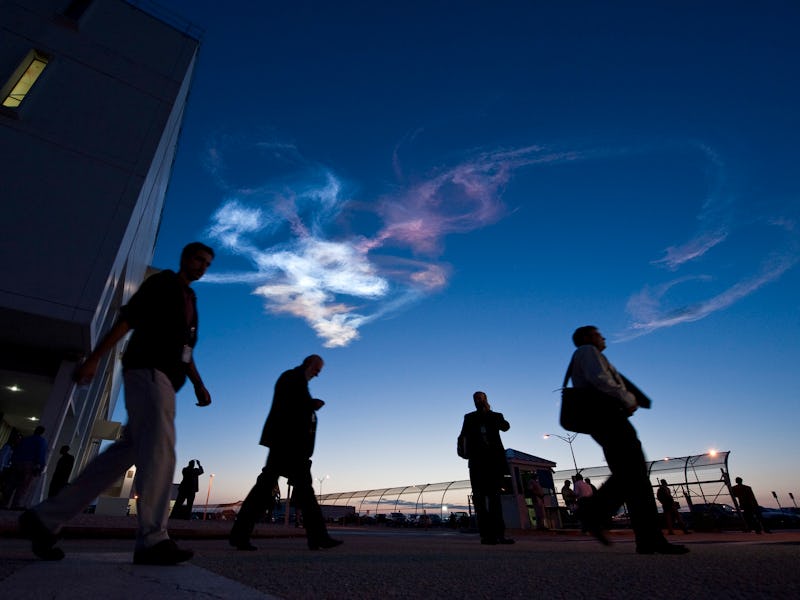Exasperated Study Debunking Chemtrails Will Fall on Deaf Ears
Conspiracies like these persist in spite of the science, not because the science is wrong.

A group of pissed-off scientists tired of debunking persistent Chemtrails conspiracy theories hauled off and published a study thoroughly debunking the theory once and for all. It’s too bad that realistically, it won’t change anyone’s mind.
The researchers’ study came out in the journal Environmental Research Letters today. The authors are a team of atmospheric chemists and geochemists, who hope to use science to definitely prove that the trails left behind by aircraft are not full of mind-controlling and weather-bending chemical particles intentionally released by national governments in order to keep us underlings in check.
Unfortunately, the people they most urgently need to address don’t exactly take mainstream science seriously.
According to the international survey referenced in the study, almost 17 percent of people believe the Chemtrails conspiracy is a real thing, despite the fact that they’ve already been confronted with plenty of proof to show that the dense columns of white mist left behind by planes are, in fact, just mist.
The new paper offers much of the same type of evidence. During their study, researchers asked a large group of experts whether they had ever encountered evidence that a “secret large-scale atmospheric program” (referred to as a SLAP) existed. Of the 77 scientists surveyed, all but one said it was completely bunk. The researchers also explained that all the data that Chemtrails conspiracy theorists cite can easily be debunked using “well-understood physics and chemistry associated with aircraft contrails and atmospheric aerosols.”
But will this matter to Chemtrails truthers, a community that includes the likes of scientific experts Kylie Jenner and former Smashing Pumpkins star Billy Corgan? In short — no. Conspiracy theorists’s mistrust of what we consider public knowledge extends to the scientific establishment itself — conspiracies like these persist in spite of the science, not because the science is wrong.
The scientists behind the recent study know better than to engage in a futile battle of philosophy. As they explain in their paper, their objective isn’t to dismantle the beliefs of truthers, but rather to give the rest of us some basis for confronting them.
“Our goal is not to sway those already convinced that there is a secret, large-scale spraying program—who often reject counter-evidence as further proof of their theories—but rather to establish a source of objective science that can inform public discourse,” they write.
If you’ve ever gotten sucked into a conversation with a conspiracy theorist, you know that bringing up more proof rarely helps, but at least it’ll make you feel better.